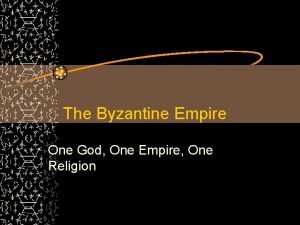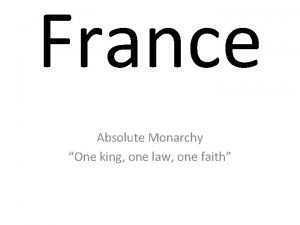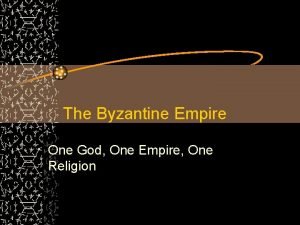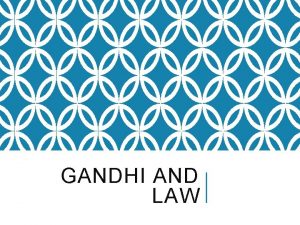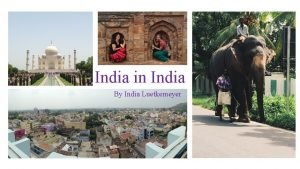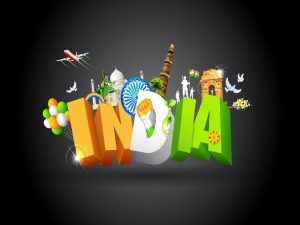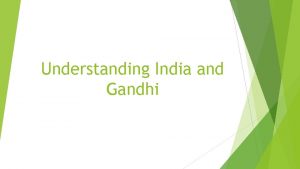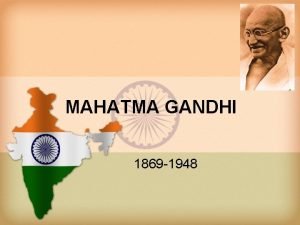GANDHI IN INDIA Who was Gandhi One of









- Slides: 9

GANDHI IN INDIA

Who was Gandhi? • • • One of the most influential figures in 20 th century Sought to challenge injustice and inequality in India Famous for his pacifist beliefs Helped India to gain independence from the British Empire (1947) His example Inspired civil rights movements throughout the world

Some famous quotations. . . An eye for an eye makes the whole world blind An ounce of practice is worth more than tons of preaching You must be the change you want to see in the world Man becomes great exactly in the degree in which he works for the welfare of his fellow men Write a short paragraph about what Gandhi believed (in your books)

What was Gandhi fighting for? 1) An end to social and racial inequality In the British Empire, Indians were treated like 2 nd class citizens In India itself, the caste system meant that some Indian people were seen as outcasts in their own nation 2) Independence for Indians were not treated fairly in the British Empire, so Gandhi believed that the only way for equality was for India to be independent of the British

How did Gandhi achieve this? • • Belief in ahimsa meant any steps were nonviolent Examples of non-violent protests: Protest marches Fasting for long periods Writing to newspapers Boycotting businesses (refusing to buy British products) Rejecting greed

Gandhi fought for what was right.

The Massacre at Amritsar (April 1919) Gandhi 07 (English Subtitles) – You. Tube • Followers of Gandhi had gathered at the Sikh Temple of Amritsar to protest non-violently against British rule • General Dyer ordered his troops to fire at the thickest part of the crowd, without warning or provocation • Add these points to your books

Gandhi’s Response � � Gandhi still urged his followers not to retaliate Why? Do you think this was the best response? � Think about the impact public non-violence would have in response to Britain’s violence � However, could casualties have been minimised? � Would Gandhi’s views have received attention in other ways?

Prep question. � � � Imagine you were at the Massacre at Amritsar. Write an account of how it felt to be there? Think about whether you still trust Gandhi Do you think non-violence works? Did you feel scared or where you proud to stand up for you beliefs. If the Sikhs fought back would the situation be worse.
